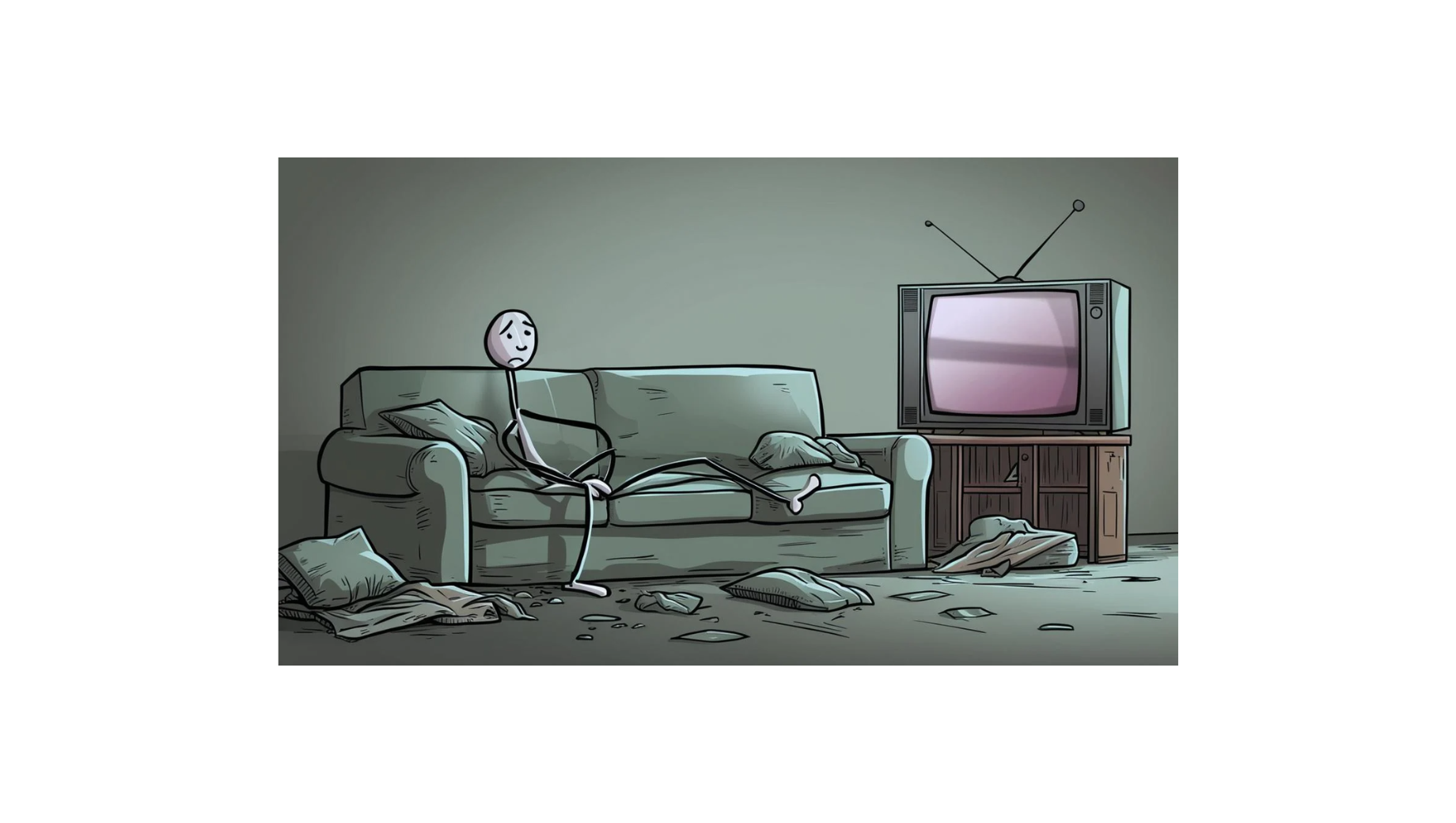Depression/Low Mood
Depression is more than just a bad day.
It’s a real mental health challenge that affects many parts of life, including how we work, connect with others, and even manage everyday tasks.
If you’ve been feeling down for a while, it’s important to understand what depression is and how to get support.
Let’s dive into this and explore how you can take steps to feel better.
What Is Depression?
Depression, or Major Depressive Disorder (MDD), is a mental health condition that causes long-lasting feelings of sadness, hopelessness, and a lack of interest in things that once made you happy.
It can also affect how you think, feel, and act, leading to emotional and physical challenges.
It’s normal to feel sad after something tough happens, like losing someone close to you or going through a hard time.
However, if those feelings last for weeks or months, and start getting in the way of your daily life, you could be dealing with depression.
Common Signs of Depression
Depression can show up in many different ways, and not everyone experiences it the same.
According to the Diagnostic and Statistical Manual of Mental Disorders, 5th Edition (DSM-5) and the International Classification of Diseases, 10th Revision (ICD-10), the most common signs of depression include:
Constant sadness or emptiness: You feel down most of the day, nearly every day.
Loss of interest or pleasure: Things you once enjoyed just don’t seem fun anymore.
Changes in appetite or weight: You might eat too much or too little, leading to significant weight changes.
Sleep issues: Either having trouble falling asleep, staying asleep, or sleeping too much.
Fatigue: Feeling constantly tired or lacking energy, no matter how much you rest.
Feelings of guilt or worthlessness: You may feel like you’re not good enough or blame yourself for things that aren't your fault.
Difficulty concentrating or making decisions: Simple tasks may seem overwhelming, and you may have trouble focusing.
Thoughts of death or suicide: You might have thoughts of wanting to harm yourself or that life isn’t worth living.
shenwise.com
For a diagnosis of depression, at least five of these symptoms need to be present for at least two weeks, and they must impact your ability to carry out everyday activities (American Psychiatric Association, 2013; World Health Organization, 1992).
Depression vs. Feeling “Sad”
It’s completely normal to feel sad from time to time, especially when life gets tough.
But depression is different—it sticks around and can make even simple tasks feel overwhelming.
It also often comes with a deep sense of hopelessness, as if things will never get better.
How Depression Affects Everyday Life
When you're depressed, even getting out of bed or going to work can feel like a huge challenge.
You might lose interest in spending time with friends or family, and things that used to bring joy just don’t seem to anymore.
In more severe cases, depression can lead to thoughts of suicide, which is why it's really important to get help if you’re struggling.
Different Types of Depression
There are different types of depression, and they all have unique symptoms and causes.
Some common ones include:
Major Depressive Disorder (MDD): The most common type of depression.
Persistent Depressive Disorder (PDD): A long-lasting, chronic depression that lasts at least two years but might not be as intense as major depression.
Bipolar Disorder: This involves mood swings between depression and periods of extreme happiness or energy.
Seasonal Affective Disorder (SAD): Depression that typically hits during the winter months when there’s less sunlight.
Postpartum Depression: Depression that affects some people after having a baby, making it hard to care for themselves or their newborn.
Ways to Treat Depression
The good news is that depression is treatable.
There are several ways to feel better, and many people successfully manage their symptoms or fully recover.
Here are some effective treatments:
Talking Therapy: Cognitive Behavioural Therapy (CBT)
Cognitive Behavioural Therapy (CBT) is one of the most researched and effective treatments for depression.
CBT is a structured, goal-oriented therapy that helps individuals identify and challenge negative thinking patterns and replace them with healthier, more realistic thoughts.
It also focuses on changing unhelpful behaviours that can reinforce depression.
The strength of CBT lies in its dual focus on both thoughts and behaviours.
For example, people who are depressed may have negative thoughts such as "I'm not good enough" or "Nothing will ever get better."
These thoughts can lead to withdrawal from activities or social situations.
CBT works by helping individuals challenge these unhelpful beliefs and replace them with more positive, realistic alternatives.
Additionally, CBT encourages behavioural changes, such as gradually engaging in activities that bring joy, even if they feel difficult at first.
One of the core principles of CBT is that how we think, feel, and behave are all connected.
By addressing these areas, CBT helps individuals break the cycle of negative thinking and inactivity that often accompanies depression.
Research has shown that CBT is highly effective in treating depression, with studies indicating that it can be just as effective as antidepressant medication for many individuals.
Furthermore, CBT equips people with practical tools and coping strategies that can help prevent relapse and manage future challenges.
CBT is especially effective for those with chronic or severe depression, and it’s often recommended as a first-line treatment due to its long-term benefits.
Many people find CBT empowering, as it provides them with the skills to manage their emotions, change unhelpful behaviours, and build resilience against future stress.
Medication
Antidepressant medications, such as SSRIs (Selective Serotonin Reuptake Inhibitors), can help balance chemicals in the brain that affect mood.
These medications are often most effective when combined with therapy.
If you're considering medication, It’s important to consult your GP or psychiatrist to find the right medication for you.
They can help determine the best course of treatment based on your individual needs and circumstances.
Lifestyle Changes:
Small changes to your daily routine can make a big difference:
Get regular exercise
Practice relaxation techniques like mindfulness
Eat a balanced diet Limit alcohol and drug use
Make sure you're getting enough sleep
Self-Help Strategies
Along with professional treatment, there are things you can do on your own to feel better, like:
Journaling your thoughts
Setting small, manageable goals
Connecting with friends and family who support you
If You Experience Depression, ShenWise Can Support You
www.shenwise.com
At ShenWise, we provide a compassionate and confidential space to help you feel supported and understood. Our personalised approach offers practical tools and guidance to help you navigate life’s challenges with greater confidence and clarity.
Reach out today for a complimentary consultation. Together, we can explore whether we are the right fit as you begin your journey towards wellbeing and personal growth.
References
American Psychiatric Association. (2013). Diagnostic and statistical manual of mental disorders (5th ed.). Arlington, VA: American Psychiatric Association.
Hofmann, S. G., Asnaani, A., Vonk, I. J., Sawyer, A. T., & Fang, A. (2012). The Efficacy of Cognitive Behavioral Therapy: A Review of Meta-analyses. Cognitive Therapy and Research, 36(5), 427-440. https://doi.org/10.1007/s10608-012-9476-1
National Institute for Health and Care Excellence. (2019). Depression in adults: Recognition and management. NICE guidelines [CG90].
World Health Organization. (2016). International classification of diseases 10th revision (ICD-10). Geneva, Switzerland: World Health Organization.


